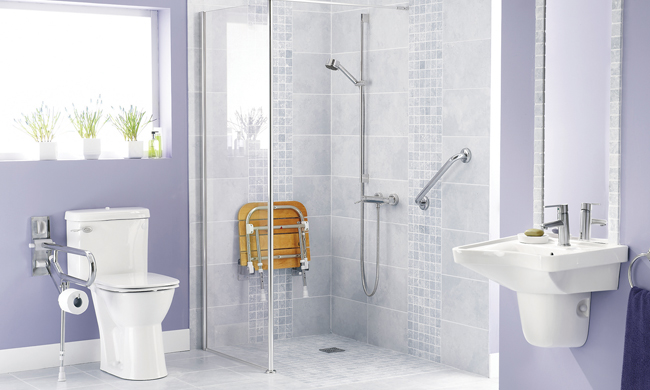Improvements for Independence
Aug 21, 2017 04:32AM ● By Family Features

Modifications to make your home more accessible
Being safe and comfortable at home is a large part of living well. Home modifications and repairs can help everyone, especially older adults and people with disabilities, maintain an independent lifestyle and prevent accidents.
Many older adults prefer to stay at home for as long as possible, but too often don’t think about whether their homes will meet their needs as they age. Making improvements for independence before they are needed is a good way to ensure that a home is ready for aging in place. Forward-thinking improvements may also help prevent falls, which often cause the need for long-term care.
Many changes, such as adding grab bars in bathrooms, can be done without a major redesign or full-blown renovation. Depending on your circumstance, it may also make sense to consider things like widening doorways and lowering countertop heights for someone who uses a wheelchair.
Here’s how you can get started:
Home assessment
Before making any changes, assess the entire home. This checklist can help identify areas that might need improvement. Everyone has different needs, but in general, a “no” answer may be cause for action.
- Are exterior walkways and entrances well-lit?
- Is there a step-free entrance to the home?
- Are entrance doors easy to lock, unlock, open and close?
- Does the main floor include a kitchen, bedroom and full bathroom?
- Are doorways wide enough for someone using a wheelchair, walker or service animal?
- Are hallways, staircases, bathrooms and the kitchen well-lit?
- Is wall-to-wall carpeting secure and in good condition?
- Are area rugs secured to the floor with grips?
- Are walkways free from obstructions and hazards like cords and furniture?
- Do stairways have sturdy handrails on both sides?
- Can bathroom and kitchen cabinets be easily reached?
- Is there a step-free shower entrance?
- Are grab bars available in or near the shower and toilet?
- Do showers have non-slip mats or adhesive strips?
- Will smoke detectors provide visual as well as audio alerts?
- Are telephones and emergency supplies easily accessible on all floors?
Cost and contractors
Minor improvements can cost between $150-$2,000, and major renovation costs vary depending on the job. However, many contractors offer reduced rates or sliding-scale fees based on income and ability to pay. Public and private financing options may also be available.
If hiring a professional, remember to get a written agreement with specific tasks, a timeline and cost estimate. Make sure the contractor is licensed, bonded and insured for the specific type of work.
More information about home modifications, including financial assistance, can be found at eldercare.gov.
Photo courtesy of Getty Images




